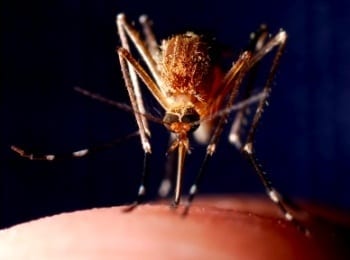
We all know that mosquitoes can be annoying. In many parts of the world, however, mosquitoes are more than just annoying–they are killers. Most people have heard of the mosquito-transmitted disease malaria, which has recently received much publicity through the work of The Bill & Melinda Gates Foundation and other non-profits. Dengue fever is another mosquito-borne disease, and although dengue receives less media attention than malaria, it nevertheless affects 50 million people each year.
Dengue has the greatest impact on those living in the tropics and sub-tropics, where the A. aegypti mosquito–the primary vector of the virus–can thrive. This, however, does not mean that those living elsewhere are unaffected; cases have been reported in southern Texas and Florida.
One of the active areas of research in dengue is investigating the huge variety of responses people can have to the virus. Many infected individuals have no symptoms, while others have mild flu-like symptoms; still others suffer life-threatening complications. One of these life-threatening complications is dengue shock syndrome (DSS), resulting from leaky blood vessels. Less than one percent of exposed individuals develop DSS, and whether one develops it depends on many factors, both genetic and non-genetic.
This month, a research team led by Chiea Khor from the Genome Institute of Singapore published in Nature Genetics a genome-wide association study on susceptibility to dengue shock syndrome after exposure to the dengue virus. They compared 3,855 Vietnamese children with DSS to 4,952 samples from the general Vietnamese population. Khor’s team found several genetic variants associated with DSS susceptibility located near the MICB gene on chromosome 6 and the PLCE1 gene on chromosome 10.
The MICB gene lies in a region of the genome known as the major histocompatibility complex (MHC), which contains many genes involved in the immune system.The PLCE1 gene, on the other hand, has also been associated with a kidney disease called nephrotic syndrome that has some symptoms similar to DSS’s symptoms.
This research shows that the development of dengue shock syndrome depends in part on individual genetics. In addition, the parallels between PLCE1 and nephrotic syndrome suggests common biological pathways may be involved in both diseases. Although more studies are needed to further confirm these discoveries, this paper presents exciting findings for the dengue research community.